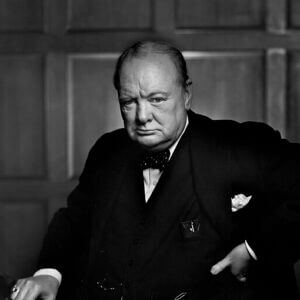Through two world wars, it has been the special relationship: the linkage between the United States and Britain. It is a linkage forged in a common language, a common culture, a common history and a common aspiration to peace and prosperity.
The relationship, always strong, was burnished by President Ronald Reagan and Prime Minister Margaret Thatcher.
Now it looks as though the special relationship has morphed into the odd couple.
Britain, it can be argued, went off the rails in 2016 when, by a narrow majority, it voted to pull out of the European Union.
With a negative growth rate, and few prospects of an economic spurt, Britons can now ponder the high price of chauvinism and the vague comfort of untrammeled sovereignty. Americans could ponder that, too, in the decades ahead.
Will tariffs — which have already driven China, Russia and India into a kind of who-needs-America bloc — be the United States’ equivalent of Brexit? This economic idea doesn’t work but has emotional appeal; it is isolating, confining and antagonizing.
A common thread in the national dialogues is immigration.
Britain is swamped. It is dealing with an invasion of migrants that has changed and continues to change the country.
In 2023, according to the U.K. Office for National Statistics, 1.326 million migrants moved to Britain; last year, the number was 948,000. There has been a steady flow of migrants over the past 50 years, but it has increased dramatically due to wars around the globe.
Among European countries, Britain, to its cost, has had the best record for assimilating new arrivals. It is a migrant heaven, but that is changing with immigrants being blamed for a rash of domestic problems, from housing shortages to vastly increased crime.
In the 1960s, Britain had very little violent crime and street crime was slight. Now crime of all kinds — especially using knives — is rampant, and British cities rival those across America — although crime seems to be declining in America, while it is rising in Britain.
Britain has a would-be Donald Trump: Nigel Farage, leader of the Reform U.K. party, which is immigrant-hostile and seeks to return Britain to the country it was before migrants started crossing the English Channel, often in small boats.
Farage has been feted by conservatives in Congress, where he has been railing against the draconian British hate-speech laws, which he sees as woke in overdrive.
Britain has been averaging 30 arrests a day for hate speech and related hate crimes, few of which result in convictions.
Two recent events highlight the severity of these laws. Lucy Connolly, the 42-year-old wife of a conservative local politician, took issue with the practice of housing immigrants in hotels; she said the hotels should be burned down. Connolly was sentenced to 31 months in jail. She has been released, after serving 40% of her sentence.
A very successful Irish comedy writer for British television, Graham Linehan, posted attacks on transgender women on X. On Sept. 1, after a flight from Arizona, he was met by five armed police officers and arrested at London’s Heathrow Airport.
Britain’s hate laws, which are among the most severe in the world, run counter to a long tradition of free speech, dating back to the Magna Carta in 1215. An attempt to get more social justice has resulted in less justice and abridged the right to speak out. It’s a crisis in a country without a formal constitution.
On Sept. 17, Trump is due to begin a state visit to Britain. Fireworks are expected. Trump’s British supporters, despite Farage and his hard-right party, are still few and public antipathy is strong.
Trump, for his part, will seek to make his visit a kind of triumphal event, gilded with overnight posts on Truth Social on how Britain should emulate him.
The British press will be ready with vituperative rebukes; hate speech be damned.
It is unlikely that the Labor government, whose membership is as diverse and divided as that of the Democratic Party, will find anything to call hate speech about attacks on Trump. A good dust-up will be enjoyed by all.
Isolated, the odd couple have each other.







